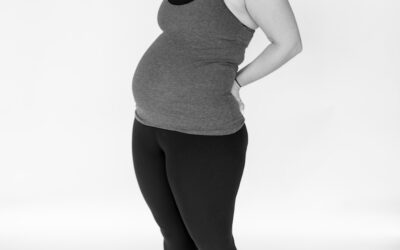Originally published on The Ribbon Box
Exercises for Fertility – Choose what works for you
Moderate exercise has been known to provide numerous health benefits, including improvement to fertility through reducing cortisol levels and improving ovulation and circulation of blood to the reproductive organs.
But, when going through clinical fertility treatments such as IUI or IVF, women are often advised to do regular, low intensity exercise, and are even told that too much exercise during this time can have a negative impact on their fertility.
The Ribbon Box is a supportive and inspirational community, by your side through the highs and lows of preconception, pregnancy and parenting. To help you find recommended exercises for your journey, the TRB team have grouped together the five best, low intensity workouts for female fertility.
Read on to dive in.
Why is exercise important for female fertility?
Strenuous or intense exercise for four or more hours a week can have a negative impact on your IVF success, menstrual cycles and stress levels. When trying to concieve (TTC) or going through IVF cycles, it is advised that you participate in more moderate exercise but on a regular basis i.e. 20 minutes of daily yoga. If you are a highly active person, you will need to consult your doctor about reducing your exercise regime gradually.
But this doesn’t mean that all exercise has a bad impact on your fertility; in fact, the truth is quite the opposite. Moderate exercise can reduce stress levels (stress is a contributor to infertility) and it can help regulate your menstrual cycle. This is thought to be because exercise helps to reduce cortisol levels by releasing endorphins and thereby supporting ovulation.
So what’s the key thing here? When TTC, keeping to less than 4 hours of exercise a week can really help to improve your fertility. Any weekly exercise above 5 hours has been found to worsen IVF success rates. One study found that women who were highly active had their chances of a successful birth reduced by 40% when compared to other women who exercised less during their IVF cycle. These same women who overexercised were more likely to suffer pregnancy loss or implantation failure.
If you are undergoing sensitive clinical treatments, always consult with your doctor about what you should do. Some infertility specialists may advise that you stop working-out altogether during the more important stages of IVF or the two week wait (TWW). Whereas, if you are conceiving naturally or are inbetween treatments, moderate exercise can help to improve fertility.
Let’s now take a look at some of the exercises that can be safe to try while TTC.
The Top 5 Recommended Moves & Options
Walking
Walking can be a great way to try to fit some exercise into your daily routine. It’s a low-level and readily available activity that doesn’t require you to set aside time for a workout. You could simply walk to work in the morning or evening, or, if you have a dog, taking them out for their daily walks can be your workout.
Walking is also a good option for people who aren’t used to being regularly active, as it is a good way to introduce you slowly into the world of fitness. It can get your heart rate up without being too strenuous on your body.
In terms of aiding fertility, walking can reduce the risk of obesity, help with blood flow to the uterus, plus it works the pelvic floor and uterus muscles.
Running
Running is just as good as walking, except slightly more intense. This is still considered a low-level exercise that is safe for fertility in small amounts.
Running can help all who are TTC to maintain a healthy weight and reduce the risk of obesity. It can also reduce stress and can help with maintaining a healthy sleep cycle. Sleep is very important for fertility as sleepless nights can disrupt your hormone balance and production (which directly affects your reproductive hormones), and it can affect your stress levels. As exercise can encourage a better night’s sleep, it has great benefits for fertility.
Running can also help you to overcome bad habits that affect your fertility, such as smoking and drinking. Finding a different coping mechanism that can reduce as much stress as nicotine does can be a helpful aid to those who are trying to quit smoking for better fertility.
Running can be a great way to improve fertility, but there are downsides to overdoing it. Some women find that excessive running can make their cycles irregular or it can stop ovulation altogether. This is due to lower progesterone levels being produced in the luteal phase (this is the phase that follows ovulation and lines the uterus for implantation) when women overexert themselves through exercise. If you notice that running is affecting your cycle, it may be time to try a different exercise and consult your infertility specialist.
Yoga
Yoga is an excellent exercise for fertility, so much so, that there are even yoga poses and programs for fertility specifically. Fertility yoga may be better for those who are trying to conceive as this targets the main areas you want to address, however standard yoga exercises can also be beneficial for fertility as well. Plus, yoga is a very low-risk exercise for those who are TTC, either naturally or clinically.
Another great plus to choosing yoga is that it is a great introductory exercise as there are beginner and expert levels. If you are not familiar with regular exercise, this can be a great place to start! As many of the poses include stretches that are mindful of how they impact your body, fertility yoga is also a great option for people with joint pain that deters them from exercising. There are different variations of the poses for anyone who feels that due to whatever reason they cannot participate in that pose, and so no one in the practice gets left behind.
Yoga is a particularly healthy exercise for those who struggle with infertility as yoga is a practice for physical and mental struggles. Infertility is a common cause of stress which yoga attempts to address during the practice. Yoga has also been known to help to ease other mental health disorders such as anxiety and depression. (Of course, if you are concerned about your mental wellbeing, consult a health professional such as your GP)
Pilates
Pilates is much like yoga and offers similar fertility benefits. Pilates incorporates breathing exercises into its posture-improving poses which can help with stress relief while also acting as a protective exercise that is gentle on your body. Stress-relieving exercise can help to improve fertility as it can reduce cortisol (the hormone released when we are stressed) and replace it with endorphins (a hormone that makes the body’s response to stress and pain more healthy, while also promoting better sleep). Too much stress and an irregular sleeping pattern can all hinder fertility, so improving these areas through pilates may be able to improve your fertility. Pilates can also help with spinal and pelvic improvement which can help to ease back pain if this is a concern for you when choosing a fertility-friendly exercise. Putting too much strain on your body can definitely hinder fertility which is why exercises that are mindful of your body, like yoga and pilates, are great accompaniments to your fertility treatment plans.
Pilates (and yoga) exercises can incidentally help with the symptoms of PCOS which may be able to improve your fertility if this is a condition that affects you. PCOS can cause hormone disruptions which leads to:
- insulin resistance (which can then lead to diabetes)
- ovulatory and menstrual cycle issues (due to producing too many male reproductive hormones)
Clearly hormone balance is a vital part of fertility which yoga and pilates can regulate by building muscle mass to combat insulin resistance, reducing cortisol to reduce stress and promoting relaxation with breathing techniques. Regulating your hormones through exercise can have a big impact on improving your ovulation and menstrual cycles as well as your normal production of important hormones.
Swimming (open and cold swimming benefits for fertility)
Swimming can be a great way to improve your fertility, especially if you are not familiar with regular exercise. Swimming is gentle on the body and if you swim in cold water or partake in open water swimming, the cold water can also boost your immune system. Swimming in cold water can also improve your circulation which is great for getting blood to your reproductive organs. Swimming is also kind on the body, as there’s less risk of joint strain as you are supported by the water. As this is an aerobic exercise, it will also help to improve your quality of sleep which does link to better fertility results.
Cold or open water swimming may also be able to help with the mental toll of struggling with infertility. Low levels of dopamine and serotonin are often found in people who are diagnosed with depression, whereas higher levels of these hormones usually keep people in a good mood. Cold water can activate the parasympathetic system, causing your body to heal and produce better levels off these hormones thus helping to improve the low moods and mental effects that infertility tends to have.
Swimming can greatly help with weight control, however swimming outside in colder water activates every muscle in your body, causing you to lose more calories than if you were swimming indoors; it encourages muscles tone, improves endurance, and it can improve your heart and lung function. Another plus to choosing swimming as your fertility-friendly activity is that it is a very low-risk exercise to try alongside IVF. So, if you are someone who is used to daily exercises and feels sluggish during times where you are told not to exercise, this can be a way to regain that feeling of normalcy without impacting your treatments.
Whatever exercise you choose, these five are all great starting places for exercise that can be gentle enough to support your fertility, no matter where you are in your journey. It’s worth noting that you should always consult your fertility specialist before making any lifestyle changes, though.
No matter where you are on your fertility journey, the team at The Ribbon Box know the struggle to conceive never leaves you and the road to parenthood isn’t always straightforward. Join their community to stay up to date, and get practical support, discounts and handy tips just like these delivered straight to your inbox.




